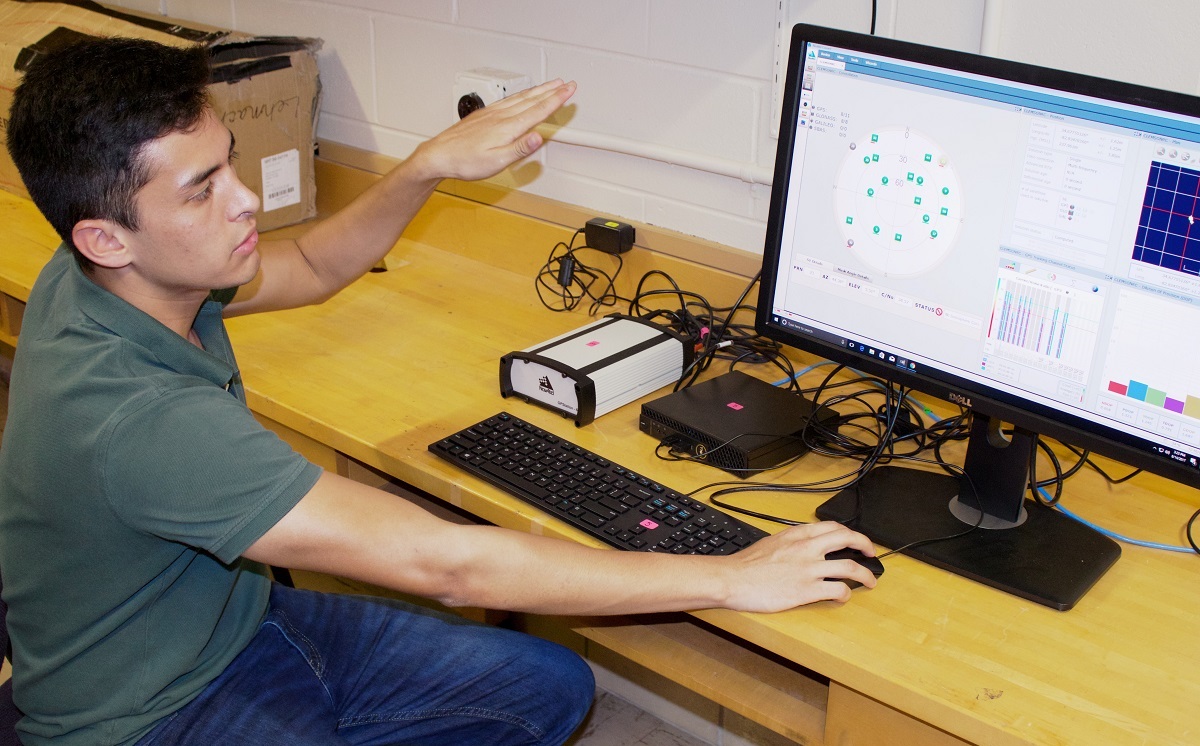GPS Signals Mostly Unaffected by Solar Eclipse, Research Shows

As the moon eclipsed the sun on Aug. 21, 2017, Embry-Riddle undergraduate student Nicolas Gachancipa worked with Clemson University researchers to monitor the ionosphere – a highly conducting, charged region of Earth’s atmosphere.
On Clemson’s South Carolina campus, located nearly at the center line of the total solar eclipse, Gachancipa – directed by principal investigator Kshitija Deshpande, an assistant professor of engineering physics at Embry-Riddle – explored how such a natural phenomenon might affect GPS navigation.
The question is important because “many rockets, missiles and airplanes use GPS to navigate, and if they lose the signal, that’s a problem,” said Gerald Lehmacher, an associate professor in Clemson’s department of physics and astronomy. “So many scientists became interested in modeling ionospheric disturbances [called scintillation]. Scientists today are still trying to figure out how to predict the ionosphere, like how we predict the weather.”
The research involving Embry-Riddle’s Gachancipa showed a reduction in the ionosphere’s total electron content leading up to totality, researchers reported. Values for scintillation – the turbulence that GPS signals experience as they pass through the ionosphere – were the same as on a typical day. This was an indication that no strong ionospheric disturbance was observed during the eclipse, Deshpande explained.
Together, the data demonstrated that GPS signal strength was lower during the eclipse, but it was not significant enough to have a noticeable effect for most users.
“The eclipse created a temporary dip in the total electron content in the ionosphere, but it did not generate any sudden, significant turbulence that might degrade the GPS navigation signals,” Deshpande said.
Her research was funded by a grant from the National Science Foundation (NSF) and conducted in collaboration with Dr. Seebany Datta-Barua at Illinois Institute of Technology, Chicago.
Gachancipa’s trip to Clemson University was supported by the NSF grant as well as Embry-Riddle’s Center for Space and Atmospheric Research.
Another aerospace engineering major, Julian A. Herrera Tenorio, assisted Gachancipa by identifying the locations of GPS satellites that were in the completely shadowed region of the sky during the eclipse.
Read more about Gachancipa’s work with Clemson researchers.
The information for this story was was provided courtesy of Hannah Halusker of Clemson University.

 Ginger Pinholster
Ginger Pinholster